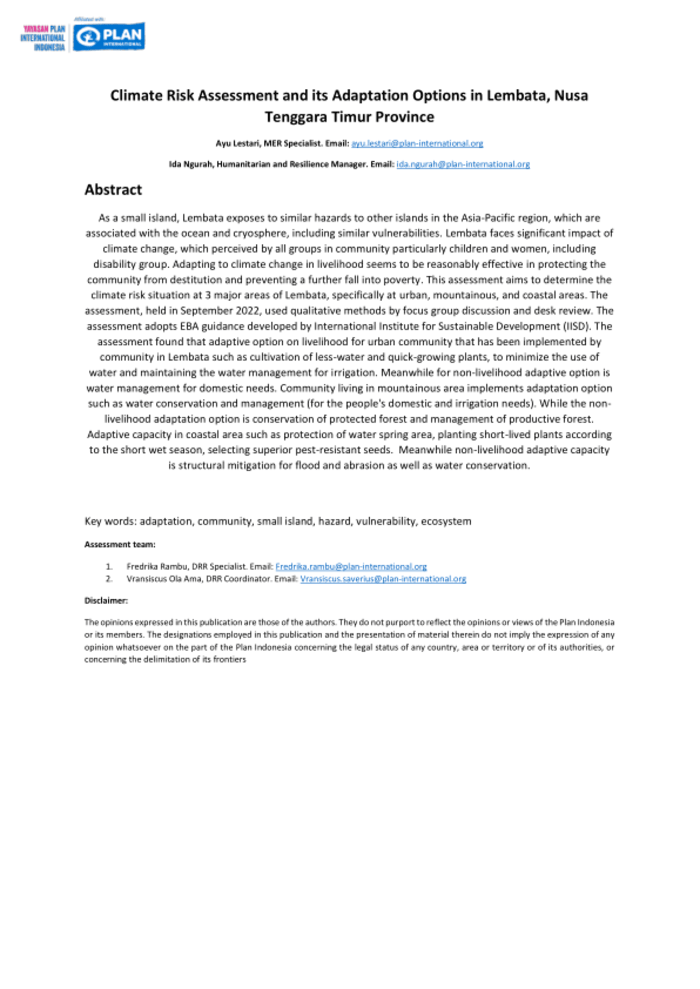Abstract
As a small island, Lembata exposes to similar hazards to other islands in the Asia-Pacific region, which are associated with the ocean and cryosphere, including similar vulnerabilities. Lembata faces significant impact of climate change, which perceived by all groups in community particularly children and women, including disability group. Adapting to climate change in livelihood seems to be reasonably effective in protecting the community from destitution and preventing a further fall into poverty. This assessment aims to determine the climate risk situation at 3 major areas of Lembata, specifically at urban, mountainous, and coastal areas. The assessment, held in September 2022, used qualitative methods by focus group discussion and desk review. The assessment adopts EBA guidance developed by International Institute for Sustainable Development (IISD). The assessment found that adaptive option on livelihood for urban community that has been implemented by community in Lembata such as cultivation of less-water and quick-growing plants, to minimize the use of water and maintaining the water management for irrigation. Meanwhile for non-livelihood adaptive option is water management for domestic needs. Community living in mountainous area implements adaptation option such as water conservation and management (for the people’s domestic and irrigation needs). While the nonlivelihood adaptation option is conservation of protected forest and management of productive forest. Adaptive capacity in coastal area such as protection of water spring area, planting short-lived plants according to the short wet season, selecting superior pest-resistant seeds. Meanwhile non-livelihood adaptive capacity is structural mitigation for flood and abrasion as well as water conservation.

